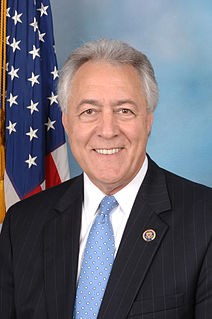A Quote by Jello Biafra
All of these reissues were not authorized by me, I do not endorse them, the live album was put out without my permission, and I've not seen a dime at this point, either.
Related Quotes
Well, Led Zeppelin IV! That's it really. I'll tell you why the album had no title - because we were so fed up with the reactions to the third album, that people couldn't understand why that record wasn't a direct continuation of the second album. And then people said we were a hype and all, which was the furthest thing from what we were. So we just said, `let's put out an album with no title at all!' That way, either people like it or they don't... but we still got bad reviews!
When I finally stopped [singing], he had been saying, like, the last day or so, he'd been saying, now, I think we should put this one in the album. So without him saying I want to record you and release an album, he kept - he started saying, let's put this one in the album. So the album, this big question, you know, began to take form, take shape. And Rick [Rubin] and I would weed out the songs.
In my opinion, I would still like to go into a studio - because I love the environment of being in a studio - and record a great album beginning to end, but then maybe not release it as an album. Maybe put singles out there, put songs out there - either give some away or release some the traditional way.
The fact that we're at a point today where anybody, anywhere can put a comic book together and get it in front of the entire planet without spending a dime on printing and distribution - that's the good thing, and I think that's what's going to save [the comics industry]. These young people who have nothing to do with the industry we're in, just going out there and doing their own work and putting it out there, letting people respond to it.
I suppose we'll make money off our album and our singles and stuff, but, like, they were made as we wanted them, exactly with what we had to say, and done exactly how we wanted them, right? And, like, we didn't put them out to make money. We put them out because we wanted to do them, do you know what I mean?
Guy Picciotto had a really sound point: Live albums basically have bands playing songs that are available on studio records, and what example can you think of where the live album is better? What are the great live albums? I have live albums of bands, but I wouldn't listen to them for the most part. So we thought, instead of spending energy trying to puzzle out how to create a live record, let's just write another studio record.
From a policymaker's point of view, [the back door] must look like a perfect solution. "We'll hold onto a separate copy of the keys, and we'll try to keep them really, really safe so that only in an emergency and if it's authorized by a court will we bring out those keys and use them." And, from a policy point of view, when you describe it that way, who could be against that?
I'm really glad we came up when we did. When we got started, the record companies were concerned with building careers. They made sure you could put on a live show before you put a record out. And if your first album sold 100,000 to 200,000 copies, they were happy, because they figured you had your foot in the door on a way to a long career.



































